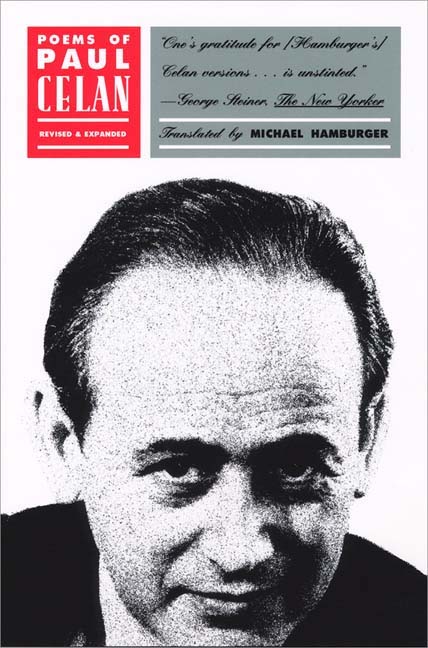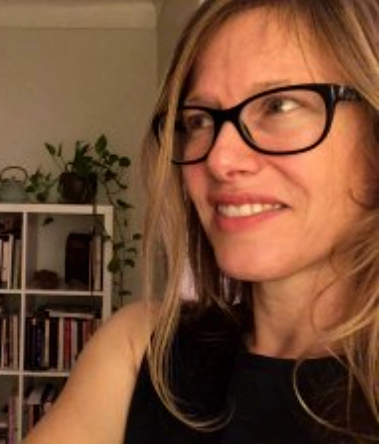I’ve long been drawn to small poems—honed, fine-boned, on wing. The leaps and turns, the sudden gaps that unbind the mind for a moment and come to rest for a moment again in deft connection. The way of making a glimpse brim into fullness deep as a dream. How this precision is not machine-like, but more like a berry: life compressed to bursting.
This love for small forms began in my 20s, in Lucille Clifton’s luminous invocations, in Stephen Berg’s translations of Ikkyu’s haiku (rangy couplets!), in Larry Eigner’s Zen sketches. So why not one of those poems? Because Celan’s poem “In the Daytime” is one of the few poems I memorized in adulthood. Because this poem refreshes my mind. Because this poem resists regular thought, is formed from slant logic/dream logic. Because this poem is made of listening. And because it moves beyond the human towards a wild other, a sudden arrival that reminds me that our days are made of change.
This poem also expands my view of poem-making as a practice of attention to include poem as communion, as something more like prayer. Clearly, Celan’s poem is a poem of attention. Better yet, it is a poem that attends without wanting, that rests in a ready waiting-that-is-not-waiting. For only in such an open space can wildness arrive and minds meet.
“In the Daytime” opens in openness, starts in the sky, in a mind like a clear eye. But Celan doesn’t just present the world as it seems. He is filtering the day through the sheerest imaginal scrim. He is tilting us into the middle world, reporting sightings, meeting another mind in a timeless time that is today. We begin in a “Hare’s pelt sky,” a live sky, suddenly all lush fur, a breathing body ready to run and take new shapes.
The poem then places us in a precarious time. (Though are not all times precarious? Especially now.) “Even now,” Michael Hamburger translates the phrase, the “Even” a nod to the fallen world, which Celan, survivor of the Shoah, knew most keenly. This “Even now” not only gestures to loss; the phrase also shifts us into a mode of close attention, with a line break that leaves us on the edge of the “now.” The poem unfolds in the deep time of a thin place, a Noh play-like zone of kami-like arrivals. But this poem doesn’t happen in the traditional times of dreamy betweenness: twilight or midnight or the dark before dawn. Instead, Celan places us “In the Daytime,” re-enchanting the day, a reminder that a deeper life is possible—is happening—here and now.
Some poems carry us beyond our senses to where our senses cross and cross over. Celan makes the invisible visible, extends our senses through the act of writing. English lacks vocabulary for subtle sensing and for the numinous nature of things. We turn to metaphor, which stems from the body, to speak of things that are not things.
Celan writes, “Even now / a clear wing writes,” a line that reminds me of a migraine’s incandescence before the pain came: patches of a student’s paper and the office wall suddenly shimmering into transparence, into nothing-that-was-not-nothing, but rather visible invisibility. The line points to something like that, like a fishing line pulling pond water, like a heat mirage rising on the road, like a glass jar’s shadow-that-is-light filigreeing the wall—things only visible because they ripple and catch the light. “A clear wing writes,” he says, reminding us that words and forms are evanescent as writing on water, as a bird’s trackless track through the sky.
The final part of the poem, the appearance of the “dust-coloured” crane, hearkens back to old cultures’ small songs that call forth spirits and messengers: “I too remember / dust- / coloured one, arrived / as a crane.” “As” hints at the world’s dream-like, shapeshifting powers—hints that this life force could have come in other forms. Spurred by this sudden company, the poet shifts from silence into speech, comes into communion with another mind. In the midst of distracted daytimes, skimming surfaces, peering into screens, this poem, itself a shared mind, helps me remember the deeper day, here with us, even now.




